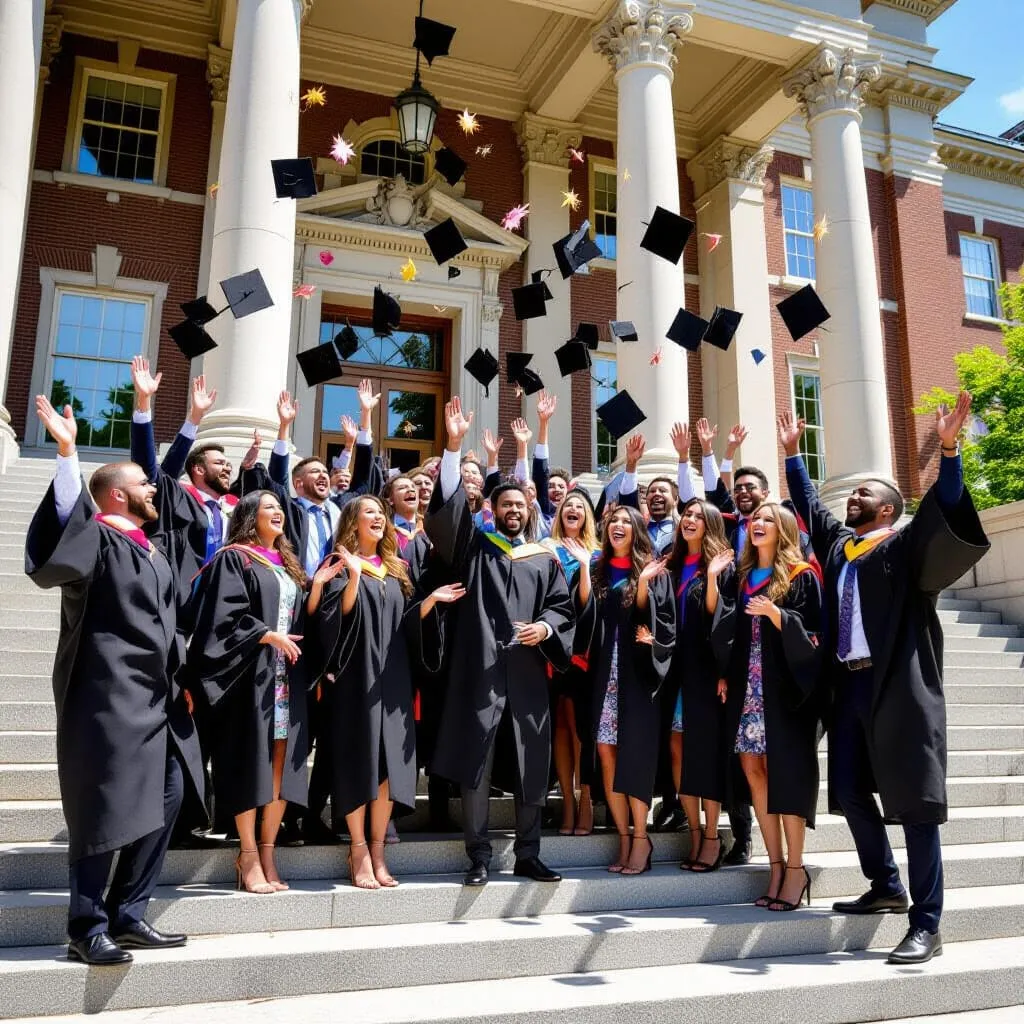Study In Australia
Studying in Australia: Latest Insights, Opportunities, and Real Student Experiences

You can read more about Foreign Australian Education on the link below:
The article below is a comprehensive guide for students and parents from India and South Asia, drawing on the latest discussions and candid advice from Quora, Reddit, and other leading student forums.
Australia continues to be a magnet for international students seeking a world-class education and a vibrant lifestyle.
However, with evolving government regulations and a dynamic global landscape, prospective students in 2025 need the most current and authentic insights to make an informed decision.
This guide cuts through the promotional material to bring you real, on-the-ground experiences and advice from those who know it best: the students and alumni who have navigated the Australian education system.
Top Universities in Australia: Rankings and Student Buzz
While official rankings provide a valuable starting point, the true measure of a university often lies in the experiences of its students.
This section combines the latest 2025 rankings with student and alumni recommendations from platforms like Quora and Reddit.
The Group of Eight (Go8) universities consistently dominate the top-tier rankings and are frequently discussed on forums as the most prestigious institutions in Australia.
These include:
- The University of Melbourne: Often cited as a top choice, particularly for its strong research output and global reputation. Students on Reddit frequently praise its vibrant campus life and the prestige it carries in the job market.
- The Australian National University (ANU): Located in the capital, Canberra, ANU is highly regarded for its research-intensive programs, especially in arts and social sciences.
- The University of Sydney: Australia's oldest university, it boasts a beautiful campus and strong programs in a wide range of fields.
- The University of Queensland (UQ): Known for its strengths in science, medicine, and engineering.
- Monash University: Located in Melbourne, it is a popular choice for business, engineering, and pharmacy.
- The University of New South Wales (UNSW): Situated in Sydney, UNSW is highly respected for its engineering and business faculties.
- The University of Western Australia (UWA): Located in Perth, it is recognized for its strengths in mining engineering and life sciences.
- The University of Adelaide: A leading university in South Australia with a strong focus on research.
Beyond the Go8, several other universities are highly recommended by students on forums for their specific strengths and supportive environments:
- University of Technology Sydney (UTS): Praised for its practical, industry-focused approach, particularly in technology and design.
- Macquarie University: Noted for its business and linguistics programs.
- RMIT University: Highly regarded for its design and technology courses.
- Deakin University: Often recommended for its focus on student satisfaction and flexible learning options.
Most Popular Programs for International Students:
Based on forum discussions, the following fields are consistently popular among international students, particularly from India and South Asia, due to strong job prospects and pathways to permanent residency:
- Information Technology and Computer Science: With a booming tech sector, graduates in areas like software development, data science, and cybersecurity are in high demand.
- Engineering: Specializations in civil, mechanical, and electrical engineering are consistently sought after.
- Healthcare and Nursing: Australia's aging population and robust healthcare system create a high demand for nurses and other healthcare professionals.
- Business and Management (including MBA): These programs are popular for their networking opportunities and relevance to a wide range of industries.
- Accounting and Finance: These fields offer stable career paths and are often on the skilled occupation lists.
Advantages & Disadvantages: The Unfiltered Reality

Forum discussions offer a treasure trove of unfiltered opinions on the highs and lows of studying in Australia.
Here's a comprehensive list of the main advantages and disadvantages, including some under-discussed realities.
Advantages:
- High-Quality Education and Research Opportunities: Australian universities are globally recognized for their academic excellence and cutting-edge research facilities. A Quora user notes, "The quality of education is top-notch, with a strong emphasis on practical learning and critical thinking."
- Post-Study Work Opportunities: The Temporary Graduate visa (subclass 485) allows eligible graduates to stay and work in Australia for a period, which is a significant draw card.
- Multicultural and Welcoming Environment: Australia's diverse population makes it a welcoming place for international students. A Reddit user shares, "I've found Australians to be generally friendly and open-minded, and I've made friends from all over the world."
- High Standard of Living and Safety: Australia consistently ranks high in terms of quality of life, with safe cities and excellent public services.
- Stunning Natural Landscapes and Outdoor Lifestyle: From beaches to the outback, Australia offers a unique and adventurous lifestyle.
Under-Discussed Pros:
- Strong Student Protections: The Education Services for Overseas Students (ESOS) Act provides a legislative framework to protect the rights of international students.
- Focus on Work-Life Balance: The Australian culture emphasizes a healthy balance between work and leisure, which can be a positive change for students from more academically intense environments.
- Opportunities in Regional Areas: While major cities are popular, regional universities and communities offer a more affordable and sometimes more welcoming experience with specific migration incentives.
Disadvantages:
- High Cost of Living and Tuition Fees: This is the most frequently cited disadvantage. As one Redditor bluntly puts it, "Australia is expensive. Be prepared for sticker shock on everything from rent to groceries."
- Competitive Job Market for Part-Time Work: While students can work part-time, finding a good job that pays well and is flexible enough to accommodate studies can be challenging, especially in major cities.
- Distance from Home and Homesickness: The geographical isolation of Australia can lead to feelings of homesickness and make it expensive to travel back home.
- Cultural Adjustment Challenges: While generally welcoming, adapting to Australian slang, social norms, and a different pace of life can take time.
- Recent Tightening of Visa and Immigration Policies: The evolving government regulations are a source of anxiety for many prospective and current students, particularly concerning permanent residency pathways.
Under-Discussed Cons:
- Mental Health Challenges: The pressure of studies, financial stress, and cultural adaptation can take a toll on mental health. A Reddit thread on the topic highlights the importance of seeking support from university services and community groups.
- Housing Scams and Exploitation: The competitive rental market can make students vulnerable to scams and exploitation by landlords. Students on forums advise thoroughly inspecting properties and understanding tenancy rights.
- "Cash Cow" Perception: Some students on forums express feeling like "cash cows" for universities, with concerns about the value for money given the high tuition fees.
Typical Pros and Cons

"Ask Me Anything" (AMA) threads on Reddit and similar Q&A formats on Quora provide a direct line to the experiences of international students. Here's a summary of the most frequently cited pros and cons from these discussions:
Typical Pros:
- "The pay for part-time work is quite good if you find a decent job."
- "The lifestyle is very laid-back and focused on enjoying the outdoors."
- "The universities have excellent support services for international students."
- "The opportunity to gain international work experience after graduation is invaluable."
- "It's a very safe country with a low crime rate."
Typical Cons:
- "Finding affordable accommodation in Sydney and Melbourne is a nightmare."
- "The public transport system can be expensive and not always reliable, depending on the city."
- "It can be hard to make genuine connections with local students who often have established social circles."
- "The competition for graduate jobs is fierce, especially for international students."
- "Be prepared for the culture shock; Australian humour can be sarcastic and take some getting used to."
Market-Leading FAQs: Your Top 10 Questions Answered

Based on a deep analysis of popular student forums, here are the 10 most common and helpful questions with concise, insightful answers sourced from reliable user feedback.
- Is it easy to find a part-time job?
It's possible, but not always easy. Competition is high, especially for jobs with good pay and flexible hours. Many students on Reddit recommend starting your job search early, networking, and being open to various roles, including hospitality and retail. As one user advises, "Don't just rely on online applications; walk in with your resume." - How much money do I really need?
Be prepared for high costs. The Australian government has a minimum financial capacity requirement for the student visa, but students on forums often recommend having more than this. A common sentiment is to have at least the first year's tuition and living expenses fully funded before you arrive. - What are the biggest challenges for Indian students?
Beyond the financial aspect, cultural adaptation is a significant challenge. This includes understanding the local accent and slang, the different academic system, and a more independent lifestyle. Food can also be a point of adjustment, though Indian groceries are widely available in major cities. - Is it safe for international students?
Australia is generally a very safe country. However, like any country, it's important to be aware of your surroundings, especially at night. Students on forums advise researching safe neighborhoods for accommodation and being cautious of scams. - Should I live on-campus or off-campus?
On-campus accommodation is convenient and a great way to meet people initially but can be more expensive. Off-campus housing offers more independence and can be cheaper, especially if you share with others, but requires more effort to find and manage. Many students suggest starting on-campus and then moving off-campus once you are more familiar with the city. - How are the professors and the teaching style?
The teaching style in Australia is generally more interactive and less hierarchical than in many South Asian countries. Students are expected to participate in discussions and think critically. Professors are approachable, and students are encouraged to ask questions. - What's the best city to study in?
This depends on your priorities. Sydney and Melbourne are vibrant and offer many opportunities but are also the most expensive. Cities like Brisbane, Perth, and Adelaide offer a more relaxed and affordable lifestyle. Regional areas can provide a unique experience and may have migration incentives. - How can I make friends with locals?
This is a common concern. Forum users suggest joining university clubs and societies, participating in sports, volunteering, and getting a part-time job. "You have to make an effort to step out of your comfort zone and initiate conversations," advises a Quora user. - What are the prospects for permanent residency (PR)?
PR pathways are becoming more competitive. It's crucial to choose a course that is in demand and to achieve good grades. Many on Reddit advise consulting with a registered migration agent to understand the latest requirements and your eligibility. - What is one thing you wish you knew before you came to Australia?
A frequent answer on forums is the importance of being mentally prepared for the challenges. "It's not all beaches and sunshine. There will be tough days, and it's important to have a strong support system and know where to seek help," shares a student on Reddit.
Budget Estimates (2025): A Realistic Financial Planner

The cost of studying in Australia is a significant consideration. The following estimates are based on recent student testimonies and government data discussed on forums, providing a realistic picture for 2025.
Tuition Fees (Annual Estimates):
- Undergraduate Bachelor's Degree: AUD $25,000 to $48,000
- Postgraduate Master's Degree: AUD $28,000 to $55,000
- Doctoral Degree: AUD $20,000 to $50,000
- Vocational Education and Training (VET): AUD $15,000 to $25,000
Note: Fees for fields like medicine and veterinary science can be significantly higher.
Program Costs (Estimated Total Tuition for a South Asian Student):
- 1-Year Graduate Diploma: AUD $28,000 - $40,000
- 2-Year Master's Degree: AUD $56,000 - $110,000
- 3-Year Bachelor's Degree: AUD $75,000 - $144,000
- 4-Year Engineering Degree: AUD $100,000 - $192,000
- 5-Year Medical Degree: AUD $250,000 - $400,000+
Living Expenses: City-Wise Variations
Living costs vary significantly across Australian cities. Here's a breakdown of estimated monthly expenses based on student discussions:
| Expense | Sydney (AUD) | Melbourne (AUD) | Perth (AUD) |
| Accommodation (Shared) | $1,200 - $2,000 | $1,100 - $1,800 | $800 - $1,400 |
| Food/Groceries | $500 - $700 | $450 - $650 | $400 - $600 |
| Public Transport | $150 - $200 | $140 - $180 | $120 - $160 |
| Utilities (Internet, Phone) | $100 - $150 | $90 - $140 | $80 - $120 |
| Health Insurance (OSHC) | $50 - $70 | $50 - $70 | $50 - $70 |
| Other (Entertainment, etc.) | $200 - $400 | $180 - $350 | $150 - $300 |
| Total Monthly Estimate | $2,200 - $3,520 | $2,010 - $3,190 | $1,600 - $2,650 |
| Total Annual Estimate | $26,400 - $42,240 | $24,120 - $38,280 | $19,200 - $31,800 |
These are estimates, and actual costs can vary based on lifestyle and spending habits. A Reddit user in a Melbourne-based thread advises, "Track your expenses for the first few months to get a realistic idea of your personal spending."
Breaking Down Living Expenses: Data and Anecdotes

Here's a closer look at the key living expenses with insights from student forums:
- Accommodation: This is the largest expense. On-campus accommodation can range from AUD $900 to $2,000 per month. Off-campus shared apartments are a popular and often more affordable choice. A Quora user shares, "Finding a shared house with other students is the best way to save on rent, but be prepared for a competitive search."
- Food: Groceries from supermarkets like Coles, Woolworths, and Aldi are the most economical option. Eating out regularly can quickly add up. A student on Reddit suggests, "Learning to cook a few simple meals will save you a lot of money."
- Transportation: Most cities have reliable public transport systems. Student concessions are often available, so be sure to check your eligibility.
- Overseas Student Health Cover (OSHC): This is a mandatory requirement for your student visa. The cost varies depending on the provider and the duration of your cover.
Government Regulations: What You Need to Know for 2025

The Australian government has been actively making changes to its international education policies. Staying informed is crucial.
Visa Rules (Subclass 500):
- Genuine Student (GS) Requirement: This has replaced the previous Genuine Temporary Entrant (GTE) requirement. The GS assessment focuses on your intention to genuinely study in Australia and your future plans.
- Financial Capacity: You must provide evidence of sufficient funds to cover your tuition, travel, and living costs. This amount is subject to change, so always check the Department of Home Affairs website for the latest figures.
- English Language Proficiency: You will likely need to provide results from an approved English language test (like IELTS or PTE) with your visa application.
Post-Study Work Rights (Temporary Graduate visa - subclass 485):
- Duration: The standard duration for a post-study work visa is typically 2 years for a Bachelor's degree, 3 years for a Master's by research, and 4 years for a PhD.
- Age Limit: The maximum age for applicants has been reduced to 35. This is a significant change that has been widely discussed on forums.
Dependents:
- There have been discussions and some changes regarding the eligibility of dependents to accompany students. It's essential to check the latest regulations on the Department of Home Affairs website before making any plans.
Scholarship Schemes:
- Australia Awards Scholarships: These are prestigious scholarships funded by the Australian government for students from developing countries.[1][2]
- University-Specific Scholarships: Most universities offer a range of scholarships for international students based on academic merit.
Evolving Government Rules: Advance Insights for 2025
Discussions on forums like Reddit and Quora among students and university advisors reveal a clear trend towards a more targeted and stringent approach to international student visas and migration.
- Increased Scrutiny of Applications: Expect a more thorough assessment of your GS statement and financial documents. A user on a popular student forum commented, "The government is cracking down on non-genuine students, so make sure your application is solid and your intentions are clear."
- Focus on In-Demand Skills: The government is increasingly aligning student visa and PR pathways with Australia's skill shortages. Choosing a course in a priority sector like healthcare, IT, or engineering can improve your long-term prospects.
- Emphasis on Regional Study: There are ongoing incentives for students to study and settle in regional areas to support local economies and ease the pressure on major cities.
Other Useful Information: Tips and Warnings from the Trenches

Real students and influencers on Reddit and Quora share invaluable advice that goes beyond the official brochures.
- Mental Health: The transition to a new country can be tough. Universities offer free counseling services, and there are many online communities and support groups for international students. A Redditor advises, "Don't be afraid to reach out for help if you're struggling. Your mental health is a priority."
- Job Market Realities: While there are part-time job opportunities, be aware that many are in the hospitality and retail sectors. Finding an internship or part-time work in your field of study can be very competitive but is highly beneficial for your post-graduation career prospects.
- Climate: Australia has a diverse climate. Research the specific climate of the city you're moving to. A common tip for those moving to Melbourne is to "always carry a jacket, as the weather can change in an instant."
- Safety: While generally safe, be aware of your surroundings and take standard precautions. A recurring piece of advice is to be cautious of online scams targeting international students.
- Adapting to Australian Culture: Australians are generally laid-back and value direct communication. A Quora user suggests, "Learn some of the local slang, be open to a different sense of humor, and don't be afraid to ask if you don't understand something."
Conclusion and 5 Pro Tips from the Forums

Studying in Australia in 2025 offers a wealth of opportunities but also comes with its challenges.
By leveraging the real-world experiences shared on platforms like Quora and Reddit, prospective students can be better prepared for the journey ahead. The key takeaways are the importance of thorough financial planning, a clear understanding of the evolving visa regulations, and a proactive approach to both academic and social life.
Here are 5 pro tips for success, sourced from the most helpful forum responses:
- "Network, Network, Network": "Don't just stick with students from your own country. Join clubs, attend university events, and talk to people. Your network will be invaluable for both your social life and your future career."
- "Become a Budgeting Guru": "Track every dollar you spend. Use budgeting apps and look for student discounts. The financial pressure is real, and being on top of your finances will reduce a lot of stress."
- "Your Mental Health Comes First": "Don't neglect your mental wellbeing. The university has resources for a reason. Use them. Talk to someone if you're feeling overwhelmed."
- "Think About PR from Day One (If That's Your Goal)": "If you hope to stay in Australia after your studies, research the skilled occupation lists and PR pathways before you choose your course. Every decision you make should align with your long-term goals."
- "Embrace the Experience, But Be Realistic": "Australia is an amazing country, but it's not a holiday. You'll have to work hard, both in your studies and likely in a part-time job. Come with a positive attitude, but also with a realistic understanding of the challenges you'll face."
Charting Your Course to Success in Australia
Navigating the path to studying in Australia is more than just an academic choice—it's a life-changing investment in your future.
While this guide provides the map, every successful journey requires an expert navigator.
This is where the unparalleled expertise of Augmentron Consultancy becomes your greatest asset.
With years of dedicated experience in the Australian education sector, our seasoned advisors demystify the complexities of university selection, financial planning, and the pivotal 2025 visa regulations.
We translate the valuable insights from forums and official data into a personalized strategy tailored to your unique academic profile and career aspirations.
From crafting a compelling Genuine Student statement to ensuring your application stands out amongst the competition, we are your trusted partners every step of the way.
Don't leave the most critical decision of your future to chance.
If you are serious about transforming your dream of studying in Australia into a seamless and successful reality, your next step is clear.
Contact Augmentron Consultancy today to schedule your personalized consultation.
Let's build your Australian success story, together.
You can read more about Foreign Australian Education on the link below:




